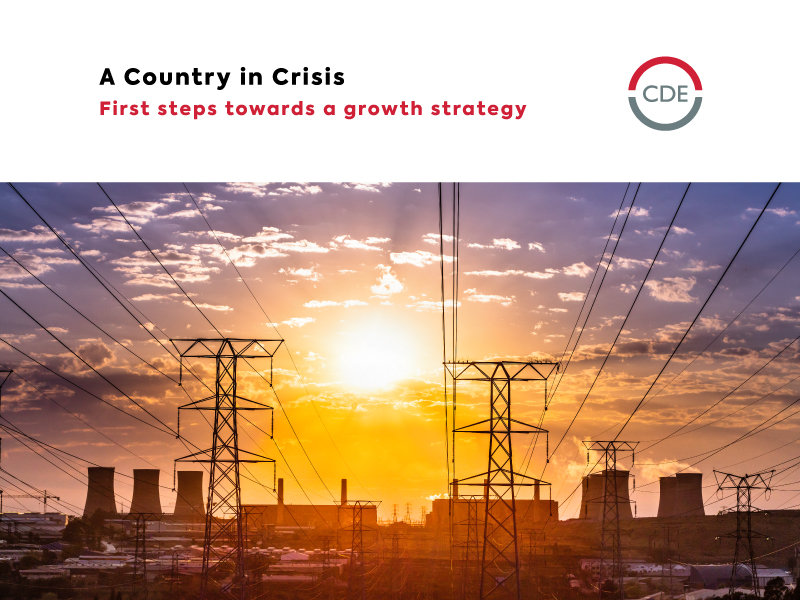
Outbreaks of violent protest in municipalities over the last two months are a sharp reminder of continuing discontent with the performance of local government.
Beginning in Free State in 2004 and spreading quickly to the rest of the country, violent protest in local communities have been a feature of our political scene ever since.
During 2005, there were protests in 90 per cent of the 136 failing municipalities that receive central government assistance and there were 881 illegal and 5 085 legal protests in municipalities through 2004/5. During the last three months there have been service-related protests in a number of places across the country from Dewetsdorp (Free State) to Walmer (Port Elizabeth) to Boikhutso and Boitumelong( North West).
The CDE study – Voices of Anger – examines the outbreak of popular violence in two municipalities: Phumelela in eastern Free State — one of the first municipalities to experience violent protests — and Khutsong on the West Rand, whose incorporation into North West rather than Gauteng has sparked off recurrent unrest.
CDE executive director Ann Bernstein says: “ In the wake of discontent in many parts of the country, the key challenge is what can the cabinet learn from these conflicts and how can they restore the trust of citizens and confidence in democratic local government.”
The CDE’s research suggests that the following issues should be on the national agenda:
- Government has taken ad hoc support measures to compensate for major shortcomings in governance and delivery in municipalities. But what is the plan, year by year, step by step, and programme by programme to reach a situation where local government can perform at least their basic functions and where communities can hold local authorities to account in between elections?
- We need a national strategy to deal with urbanization and its consequences, particularly the implications for small towns that experience stagnant economic growth and large scale influx of poor people simultaneously. Who is in charge of developing this strategy and when will it be made public? What are the roles of different departments in the three spheres of government and in particular market forces and private companies in responding to increased urbanization or promoting economic growth outside larger cities?
- Another favoured paper instrument of local government is the LED, or local economic development strategy. This approach often matches the IDPs in consisting of ‘Rolls Royce’ paper plans composed of ‘wish lists’ that raise expectations but are never implemented or have little or no impact on investment, jobs or growth. The gap between the world of expensive consultants who draw up plans and move on, and the reality of citizens’ daily lives, should lead to a re-examination of the national department’s fixation on paper IDPs or LEDs.
- Economic growth outside South Africa’s metropolitan areas and the few other successful (mainly tourist-based) urban nodes will only take place if there are conditions attractive to local and regional companies. This requires an understanding of the environment in which entrepreneurs will risk their precious assets. It also requires a welcoming attitude to private enterprise that is frequently not a part of the prevailing orthodoxy of politicians or officials. National leaders need to put far more effort into sharing their conversion to market economics with party leaders and members throughout the country.
- How can we ensure genuine credibility in local government officials and representatives in municipalities like Phumelela? Why is local democracy not working in these places? Democracy requires an ability to hold public representatives and officials to account. It requires politicians and officials to feel responsible to the electorate but this is not happening in very many places. Why not? And what needs to change for this to happen? What part does the practice of deployment play in diminishing citizens’ faith in governance?
- The skills shortages in municipalities are far broader than a shortage of ‘hard’ technical skills in engineering and finance – crucial though they are. Phumelela was cruelly short of leadership, vision and integrity, an ethos of public service and management skills. Why do we keep appointing people who cannot do the job?
These are difficult challenges for a newly democratic developing country to face and no one should pretend there are easy answers or recommendations. However they are the kinds of issues we should be debating.
Bernstein says, ‘ We should focus now on four critical questions’.
- How do we prevent the continued outbreak of violent protest in South African towns?
- Has the cabinet carefully looked into the nature and dynamics of the local protests taking place in different parts of the country (legal and illegal, violent and non-violent)?
- Have they developed an effective response – based on a thorough understanding of what is taking place – that is designed to ensure that violence does not break out again?
- If so, what is this comprehensive response and when will it be subject to public debate?
-CDE



